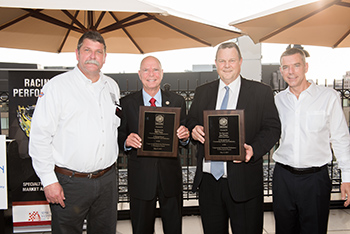By SEMA Washington, D.C., Staff
Under a new Maryland law, as of January 1, 2020, it will be illegal to sell or use wheel weights containing more than 0.1% lead or mercury. The law also requires that any lead and mercury wheel weights removed in the process be properly recycled. Maryland joins seven other states that have already banned lead wheel weights, namely California, Illinois, Maine, Minnesota, New York, Vermont and Washington state.
The automakers no longer use lead weights as original equipment, and the U.S. Environmental Protection Agency launched a voluntary nationwide initiative in 2008 to stop using lead weights. If the weights fall off tires, lead particles may pose the risk of contaminating surface and ground water supplies. Automakers, tire makers and the aftermarket have turned to three main substitute materials—steel, zinc or composites.
For more information, contact Stuart Gosswein at stuartg@sema.org.


